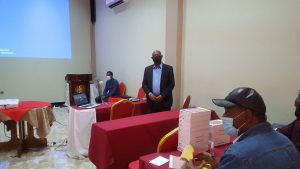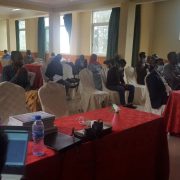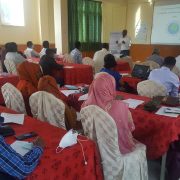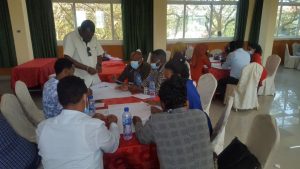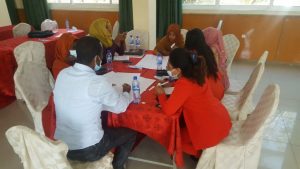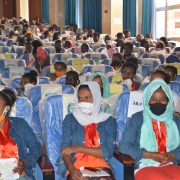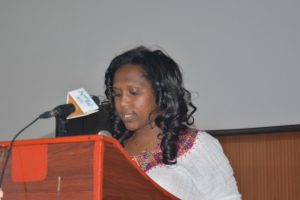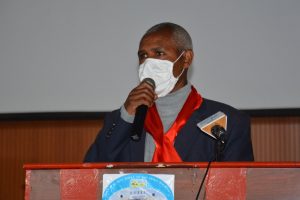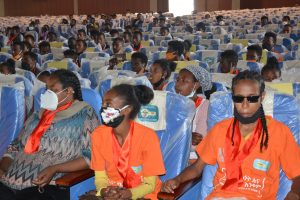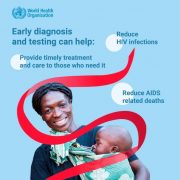Global solidarity and resilient HIV services
The global HIV epidemic is not over and may be accelerating during the COVID-19 pandemic, with a devastating impact on communities and countries. In 2019, there were still 38 million people living with HIV infection. One in five people living with HIV were not aware of their infection and one in 3 people receiving HIV treatment experienced disruption to the supply of HIV treatments, testing and prevention services, especially children and adolescents. In 2019, 690 000 people died from HIV-related causes and 1.7 million people were newly infected, with nearly 2 in three (62%) of these new infections occurring among key populations and their partners.
Despite significant efforts, progress in scaling up HIV services was already stalling before the COVID-19 pandemic. Slowing progress means the world will be missing the “90-90-90” targets for 2020, which were to ensure that: 90% of people living with HIV are aware of their status; 90% of people diagnosed with HIV are receiving treatment; and 90% of all people receiving treatment have achieved viral suppression. Missing these intermediate targets will make it even more difficult o achieve the end of AIDS by 2030.
The breakdown in essential HIV services due to COVID-19 threatens lives. COVID makes it difficult and dangerous for frontline health workers to deliver continuous, high quality HIV services to everyone who needs them. Sickness and restricted movement make it difficult for people living with HIV to access services. Economic disruption caused by COVID can make HIV services unaffordable or unobtainable. And the pandemic may interfere with supply chains and service delivery. For example, as of July 2020, one third of people on HIV treatment had experienced drug stockouts or interruptions in supplies. Supply disruptions such as these are devastating; a WHO and UNAIDS modeling study showed that six-month disruption in access to HIV medicines could lead to a doubling in AIDS-related deaths in sub-Saharan Africa in 2020 alone.
Now is the time for us to once again make a leap in our response to work together to end COVID-19 and get back on track to end HIV by 2030. On World AIDS Day 2020, WHO is calling on global leaders and citizens to rally for “global solidarity” to overcome the challenges posed by COVID-19 on the HIV response. WHO has chosen to focus on “Global solidarity, resilient HIV services” as the WHO theme for World AIDS Day this year.
The key actions are:
1 Renew our fight to end HIV
The global AIDS response has slowed down: it’s time now to invest, to innovate HIV services with broader health care and the pandemic response to get back on track to end HIV by 2030. Missing the global targets for HIV for 2020 should not be a setback but a renewed call to do better.
2 Use innovative HIV services to ensure continued HIV care.
There are many new approaches countries are adopting to ensure HIV care during the pandemic. WHO has recommended multi-month prescriptions of HIV medicines to protect the health of people on HIV treatment and to reduce the burden on overburdened health services.
3 Engage and protect our nurses, midwives and community health workers
We urge policymakers to ensure that frontline health workers, nurses, midwives and community health workers are engaged and protected when delivering services for HIV and COVID-19.
4 Prioritize the vulnerable – youth and key populations
We need to ensure that children, adolescents and members of key and vulnerable populations affected by HIV do not fall through the cracks of health care disruptions during COVID-19. Key populations include people who use drugs, men who have sex with men, sex workers, transgender people and people in prisons that are disproportionately affected by HIV.
Please join us for a webinar to celebrate World AIDS Day on 1 December 2020 from 13:00 to 14:30 Geneva time (Central European Time). The event will cover global efforts to ensure global solidarity and resilient HIV services, including during the COVID-19 pandemic.
source World Health Organization
